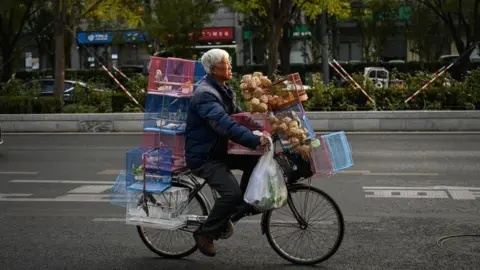 Getty Images
Getty Images“The Chinese people are so miserable,” read a social media post in the wake of yet another mass killing in the country earlier this year. The same user also warned: “There will only be more and more copycat attacks.”
“This tragedy reflects the darkness within society,” wrote another.
Such bleak assessments, following a spate of deadly incidents in China during 2024, have led to questions about what is driving people to murder strangers en masse to “take revenge on society”.
Attacks like this are still rare given China’s huge population, and are not new, says David Schak, associate professor at Griffith University in Australia. But they seem to come in waves, often as copycat attempts at garnering attention.
This year has been especially distressing.
From 2019 to 2023, police recorded three to five cases each year, where perpetrators attacked pedestrians or strangers.
In 2024, that number jumped to 19.
In 2019, three people were killed and 28 injured in such incidents; in 2023, 16 dead and 40 injured and in 2024, 63 people killed and 166 injured. November was especially bloody.
On the 11th of that month, a 62-year-old man ploughed a car into people exercising outside a stadium in the city of Zhuhai, killing at least 35. Police said that the driver had been unhappy with his divorce settlement. He was sentenced to death this week.
Days later, in Changde city, a man drove into a crowd of children and parents outside a primary school, injuring 30 of them. The authorities said he was angry over financial losses and family problems.
That same week, a 21-year-old who couldn’t graduate after failing his exams, went on a stabbing rampage on his campus in Wuxi city, killing eight and injuring 17.
In September, a 37-year-old man raced through a Shanghai shopping centre, stabbing people as he went. In June, four American instructors were attacked at a park by a 55-year-old man wielding a knife. And there were two separate attacks on Japanese citizens, including one in which a 10-year-old boy was stabbed to death outside his school.
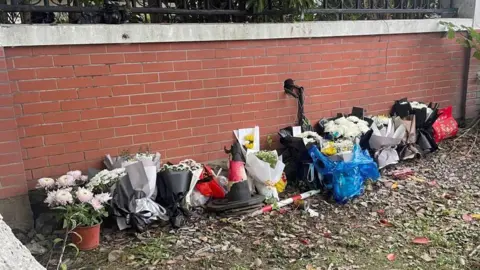 Reuters
ReutersThe perpetrators have largely targeted “random people” to show their “displeasure with society”, Prof Schak says.
In a country with vast surveillance capabilities, where women rarely hesitate to walk alone at night, these killings have sparked understandable unease.
So what has prompted so many mass attacks in China this year?
China’s slowing economy
A major source of pressure in China right now is the sluggish economy. It is no secret that the country has been struggling with high youth unemployment, massive debt and a real estate crisis which has consumed the life savings of many families, sometimes with nothing to show for it.
On the outskirts of most major cities there are entire housing estates where construction has stopped because indebted developers cannot afford to complete them. In 2022, the BBC interviewed people camping in the concrete shells of their own unfinished apartments, without running water, electricity and windows because they had nowhere else to stay.
“Optimism certainly does seem to have faded,” says George Magnus, a research associate at Oxford University’s China Centre. “Let’s use the word trapped, just for the moment. I think China has become trapped in a sort of cycle of repression. Social repression and economic repression, on the one hand, and a kind of faltering economic development model on the other.”
Studies appear to point to a significant change in attitudes, with a measurable increase in pessimism among Chinese people about their personal prospects. A significant US-China joint analysis, which for years had recorded them saying that inequality in society could often be attributed to a lack of effort or ability, found in its most recent survey that people were now blaming an “unfair economic system”.
“The question is who do people really blame?” Mr Magnus asks. “And the next step from that is that the system is unfair to me, and I can’t break through. I can’t change my circumstances.”
A lack of options
In countries with a healthy media, if you felt you had been fired from your job unfairly or that your home had been demolished by corrupt builders backed by local officials, you might turn to journalists for your story to be heard. But that is rarely an option in China, where the press is controlled by the Communist Party and unlikely to run stories which reflect badly on any level of the government.
Then there are the courts – also run by and for the party – which are slow and inefficient. Much was made on social media here of the Zhuhai attacker’s alleged motive: that he did not achieve what he believed was a fair divorce settlement in court.
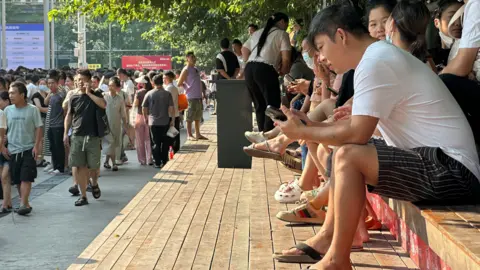 BBC/Xiqing Wang
BBC/Xiqing WangExperts say other outlets for venting frustrations have also narrowed or been shut down altogether.
Chinese people often air their grievances online, says Lynette Ong, a political science professor at the University of Toronto, who has carried out significant research on how the Chinese state responds to push back from its people.
“[They] will go on to the internet and scold the government… just to vent their anger. Or they may organise a small protest which the police would often allow if it’s small-scale,” she explains. “But this sort of dissent, small dissent, has been closed off in the last couple of years.”
There are plenty of examples of this: Increased internet censorship, which blocks words or expressions that are deemed controversial or critical; crackdowns on cheeky Halloween costumes that make fun of officialdom; or when plain-clothed men, who appeared to have been mobilised by local officials, beat up protesters in Henan province outside banks which had frozen their accounts.
As for dealing with people’s mental and emotional responses to these stresses, this too has been found wanting. Specialists say that China’s counselling services are vastly inadequate, leaving no outlet for those who feel isolated, alone and depressed in modern Chinese society.
“Counselling can help build up emotional resilience,” says Professor Silvia Kwok from Hong Kong’s City University, adding that China needs to increase its mental health services, especially for at-risk groups who have experienced trauma or those with mental illness.
“People need to find different strategies or constructive ways to deal with their emotions… making them less likely to react violently in moments of intense emotional stress.”
Taken together, these factors suggest the lid is tightening on Chinese society, creating a pressure cooker-like situation.
“There are not a lot of people going around mass killing. But still the tensions do seem to be building, and it doesn’t look like there is any way it is going to ease up in the near future,” Mr Magnus says.
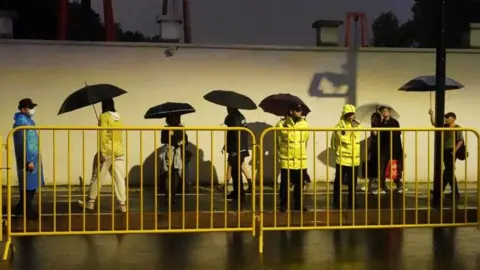 Reuters
ReutersWhat should worry the Communist Party is the commentary from the general public blaming those in power for this.
Take this remark for example: “If the government truly acts fairly and justly, there would not be so much anger and grievance in Chinese society… the government’s efforts have focused on creating a superficial sense of harmony. While it may appear that they care about disadvantaged people, their actions have instead caused the greatest injustices.”
While violent attacks have been rising in many countries, according to Professor Ong, the difference in China is that officials have had little experience dealing with them.
“I think the authorities are very alarmed because they’ve not seen it before, and their instinct is to crack down.”
When China’s leader Xi Jinping spoke about the Zhuhai attack, he seemed to acknowledge pressure was building in society. He urged officials across the country to “learn hard lessons from the incident, address risks at their roots, resolve conflicts and disputes early and take proactive measures to prevent extreme crime”.
But, so far, the lessons learnt seem to have led to a push for quicker police response times using greater surveillance, rather than considering any changes to the way China is run.
“China is moving into a new phase, a new phase that we have not seen since the late 70s,” Prof Ong says, referring to the time when the country began opening to the world again, unleashing enormous change.
“We need to brace for unexpected events, such as a lot of random attacks and pockets of protest and social instability emerging.”












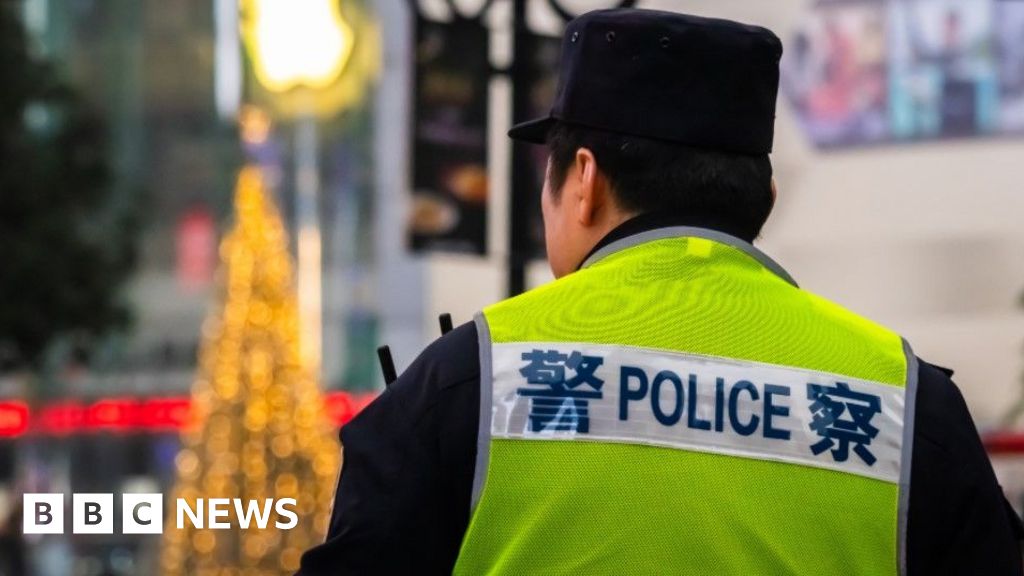












+ There are no comments
Add yours